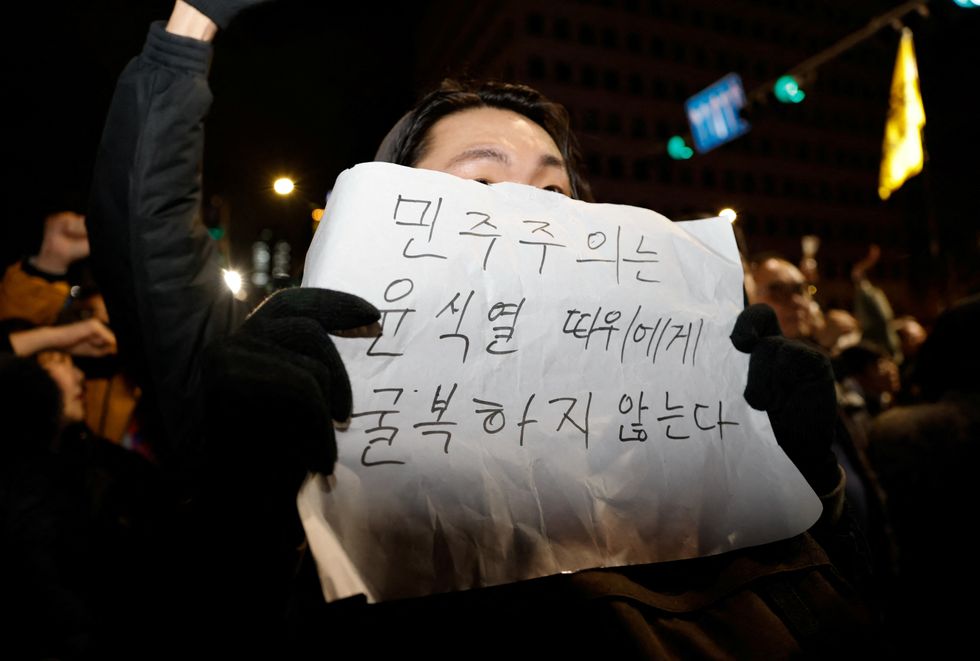WATCH NOW: Expert reacts as South Korea enacts martial law in a surprise move
GB NEWS
The President's powers and functions will be frozen once documentation of his impeachment is handed over to him and the country's Constitutional Court
Don't Miss
Most Read
Trending on GB News
The South Korean parliament has voted to impeach President Yoon Suk Yeol following his attempt to declare martial law on December 3.
The national parliament held the vote earlier today and required two-thirds of the Assembly to support the motion - which is 200 of its representatives.
A total of 204 MPs voted in favour of the motion with the whole parliament taking part.
As a result of his actions at the start of December, the country was thrown into constitutional chaos, with protesters calling for his resignation.
Despite the Opposition parties controlling 192 seats, a previous attempt to impeach President Yoon Suk Yeol failed last week when the ruling party People's Power Party (PPP) boycotted it - except for one member.
PPP representative Ahn Cheol-soo said online that he would support the vote "for the sake of swift stabilisation of people's livelihood, economy and diplomacy".
The motion has alleged that Yoon "committed rebellion that hurts peace" across the country "by staging a series of riots", making reference to the military and police forces which had threatened the public, as well as the National Assembly.
Yoon's powers and functions as President of South Korea will be frozen once formal documentation of his impeachment is handed over to him as well as the country's Constitutional Court.
LATEST DEVELOPMENTS:
Now, the court has a total 180 days to judge whether Yoon ought to be dismissed or returned as President, although this time constraint is not legally binding.
However, if he is dismissed from his position, the country is required to hold a national election to elect a new President in the next 60 days.
Earlier this month, Yoon caused a constitutional crisis in South Korea by attempting to impose martial law for the first time in South Korea in over four decades.
Yoon was quick to change his mind, retracting the order within six hours of its initial implementation after the parliament voted against the law.

A person with a placard that reads "Democracy will not surrender to Yoon Suk Yeol" in Seoul
REUTERS
After Yoon's attempt to impose the law, demonstrations took place across the country as many demanded that he resign.
As the results were announced earlier, physical therapist and protester Sim Hee-seon said: "I'm so happy that the bill passed. It's a relief that we won't need to come out to protest in the cold anymore."
"At the same time, the fight is not over. We know that we'll have to wait for the court's judgment for his impeachment to be finalised. We will keep watching," she told the BBC.
For now, the President's duties will be temporarily handed over to the country's Prime Minister Han Duck-soo, who was appointed by Yoon.
The South Korean parliament last impeached its President in 2017, when conservative politician Park Geun-hye was ousted after he was caught amid a bribery and influence scandal.







